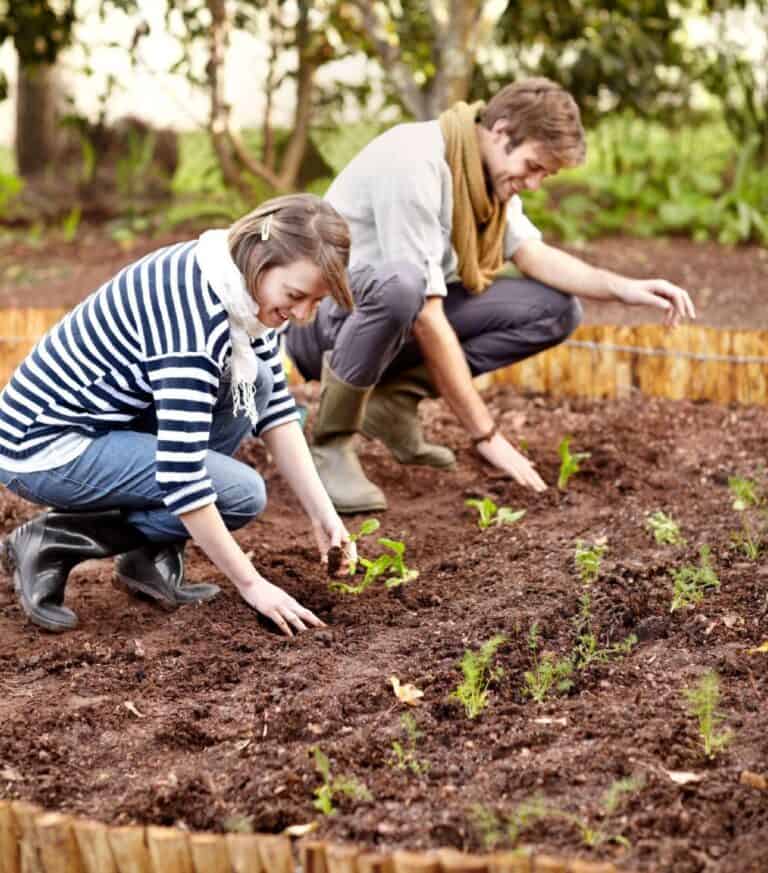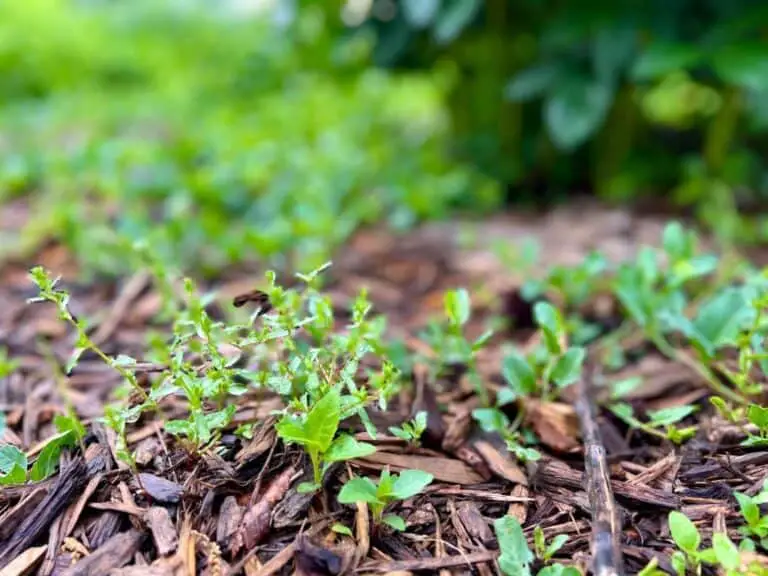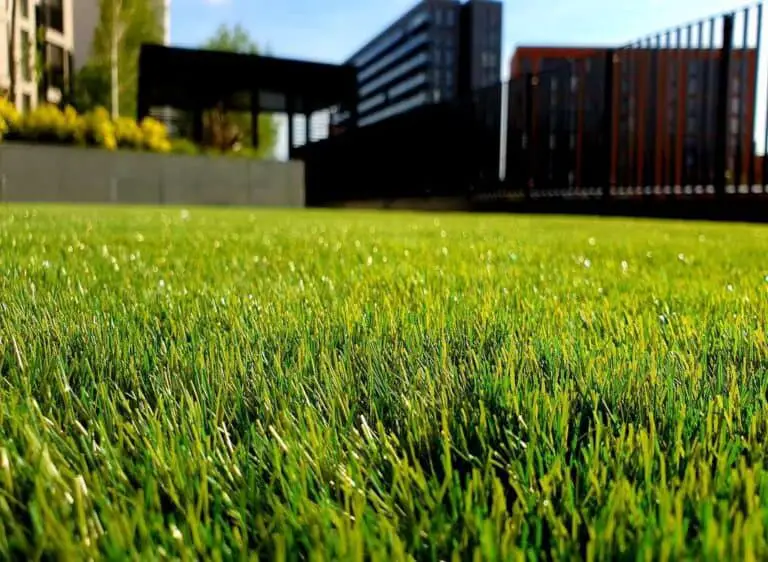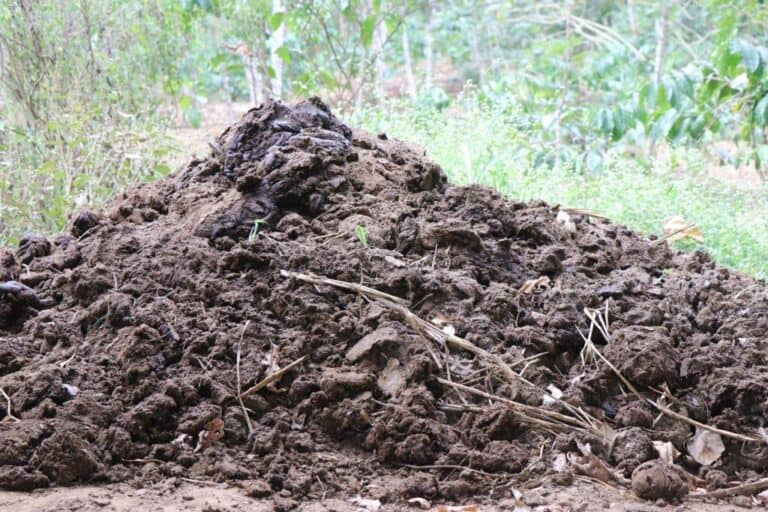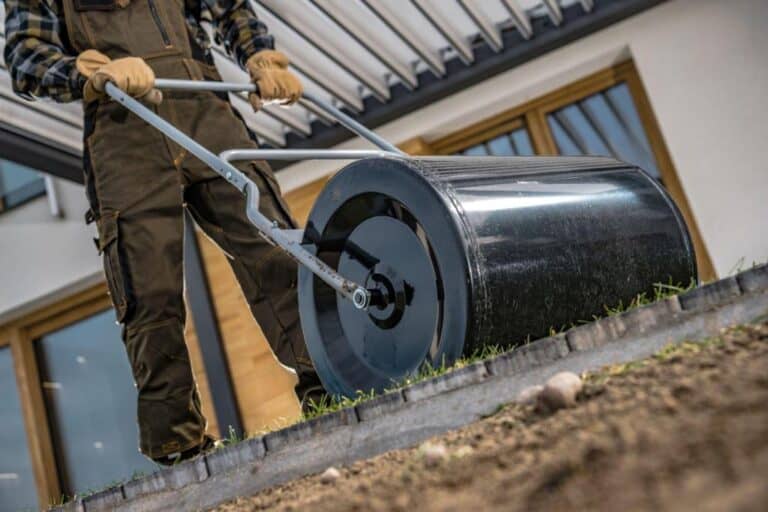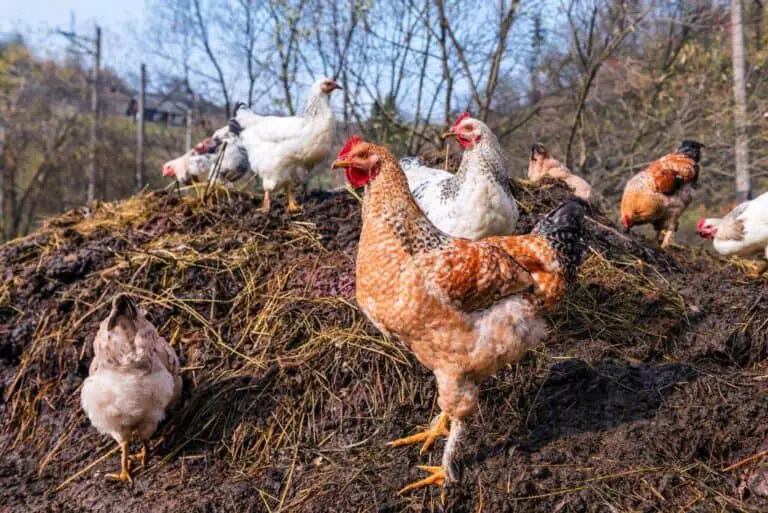Will Composted Manure Burn and Damage Your Plants?
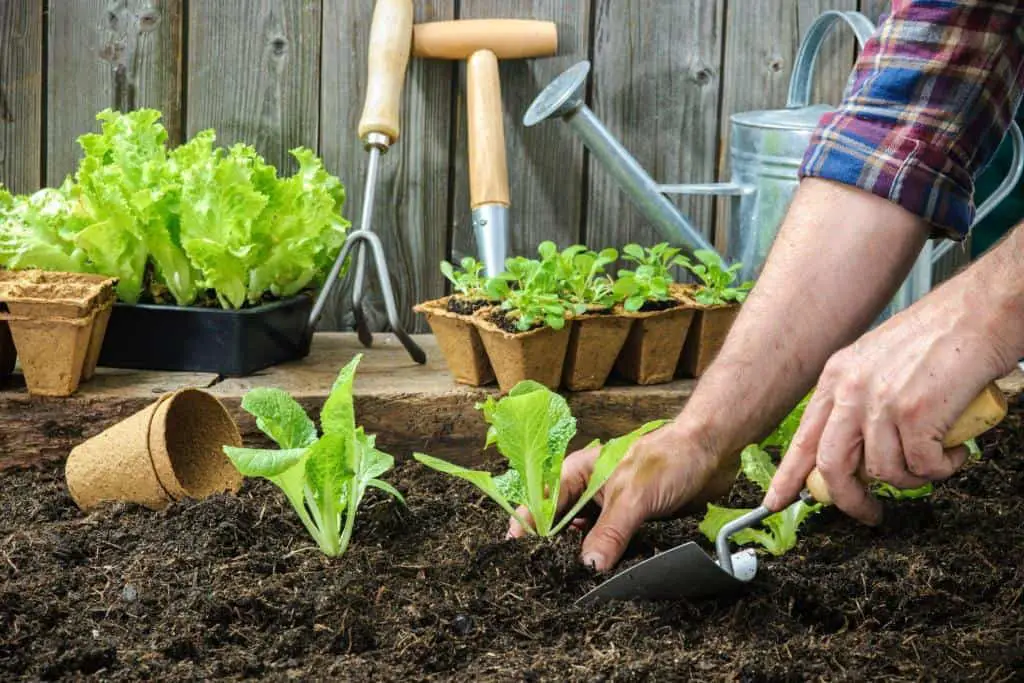
When it comes to gardening and nurturing your beloved plants, the choice of soil amendment can make a world of difference. Composted manure is a popular choice for many gardeners due to its nutrient-rich properties, but there’s a common concern: Will it burn and damage your plants?
We are on a quest for answers as we travel through the verdant realms of horticulture. We’ll uncover the secrets of composted manure, explore its nutrient-rich allure, and unveil the truth behind the myth of plant-burning fears.
In this article, we’ll delve into the fascinating world of composted manure, discussing what it is, how to use it, and whether it can be detrimental to your garden. Join us as we delve into the heart of this organic enigma, arming you with knowledge to nurture your garden’s vitality and beauty.
Understanding Composted Manure
Composted manure is the result of a natural decomposition process that transforms raw animal waste into a nutrient-rich, soil-enhancing substance. This process involves microorganisms breaking down the organic matter in manure, which, over time, results in a stable and nutrient-packed product. Gardeners often use composted manure to enrich their soil, improve water retention, and boost plant growth.
Key Nutrients Found in Composted Manure
Composted manure is a treasure trove of essential nutrients for plants. It typically contains:
- Nitrogen (N): Essential for leafy green growth.
- Phosphorus (P): Promotes root development and flowering.
- Potassium (K): Aids in overall plant health and disease resistance.
- Organic matter: Improves soil structure and water retention.
Will Composted Manure Burn and Damage Your Plants?
The concern about composted manure “burning” plants arises from its potential to harm plant roots due to its high nutrient content. Composted manure can indeed harm plants if not used correctly. One primary reason for this is the excessive application of compost. When too much compost is added, it elevates nutrient levels in the soil, potentially causing damage to plant roots and stems.
To understand this phenomenon better, it’s essential to distinguish between fresh manure and composted manure. Fresh manure, straight from the barn, is indeed high in nutrients and can be harmful to plants if applied directly. It can release excessive amounts of ammonia, which can be toxic to plant roots.
Another factor to consider is the salt content in the compost. Composts with high salt levels should be applied well in advance of planting to allow for leaching and to prevent the development of root diseases. Monitoring and managing salinity is a crucial quality control aspect.
Using unfinished compost can also pose a risk, as it generates heat during decomposition, which can harm plant roots.
Additionally, compost rich in animal manure can be particularly harmful if it hasn’t aged adequately. As the animal manure breaks down, it can release ammonia, which has the potential to burn plant roots and stems. Properly aging such compost is essential to mitigating this risk.
Benefits of Composted Manure
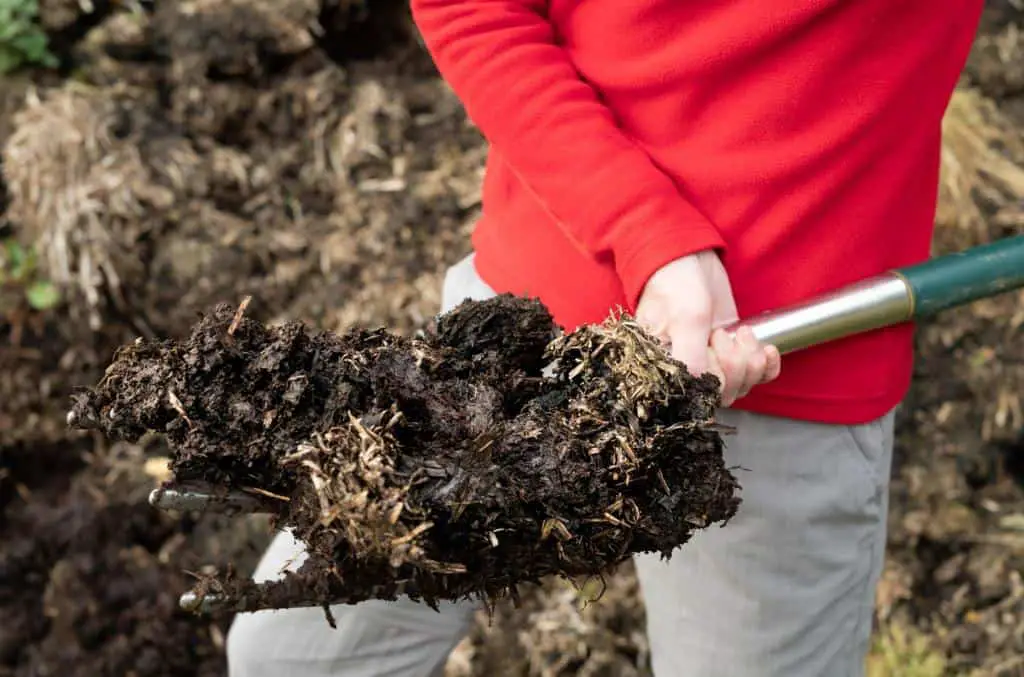
Now that we’ve addressed the burning concern, let’s explore why gardeners love composted manure:
1. Nutrient-Rich Soil
Composted manure significantly enhances the nutrient content of your soil. It provides a slow-release source of essential nutrients, ensuring your plants receive the sustenance they need throughout the growing season.
2. Improved Soil Structure
The organic matter in composted manure improves soil structure by increasing its ability to retain water and nutrients. This leads to better aeration and root development.
3. Beneficial Microorganisms
Compost is a thriving ecosystem of beneficial microorganisms. These tiny workers break down organic matter further, releasing even more nutrients for your plants.
4. Environmentally Friendly
Using composted manure is an eco-friendly way to recycle organic waste and reduce landfill contributions. It’s a sustainable choice that promotes responsible gardening.
Potential Drawbacks of Using Composted Manure
While composted manure offers numerous benefits, it’s important to be aware of potential drawbacks:
1. Pathogen Risk
In rare cases, pathogens from animal waste may survive the composting process. To minimize this risk, ensure that the manure reaches a sufficiently high temperature during composting.
2. Weed Seeds
Composted manure may contain weed seeds, which can sprout in your garden. Be vigilant and remove any weeds promptly to prevent them from taking over.
See also: Manure vs. Compost: Which One is Better?
How Much Composted Manure Is Needed?
Determining the right amount of composted manure for your garden is a crucial step in harnessing its benefits while avoiding potential issues. Too much can overwhelm your plants, while too little might not provide the desired nourishment. So, let’s delve into the art of finding that perfect balance.
Factors Influencing the Amount of Composted Manure
Several factors come into play when deciding how much composted manure your garden needs:
- Soil Type: Consider your soil’s composition. Sandy soils typically require more composted manure for improved water retention and nutrient holding capacity, while clay soils benefit from enhanced drainage with moderate amounts.
- Plant Types: Different plants have varying nutrient requirements. Leafy greens may need less than heavy-feeding vegetables like tomatoes or corn. Flower beds and shrubs may have their own unique needs.
- Garden Size: The size of your garden dictates the quantity needed. Smaller gardens require less, while larger ones necessitate more significant amounts.
- Compost Quality: The quality of your composted manure also matters. Rich, well-composted manure contains more nutrients, so you can use less of it.
Calculating the Right Amount
To calculate the right amount of composted manure for your garden, follow these general guidelines:
- Soil Improvement: If you’re amending your soil for general improvement, aim for about 1 to 2 inches of composted manure spread evenly over the garden bed. This equates to approximately 30 to 60 pounds per 100 square feet.
- New Plantings: When planting new seedlings or transplants, dig a hole twice the size of the root ball and mix a handful of composted manure with the native soil before planting.
- Topdressing: For established plants, a light topdressing of composted manure once or twice a year can suffice. Use around 1/4 to 1/2 inch of compost on the soil surface.
- Vegetable Gardens: Vegetable gardens often benefit from higher amounts of compost. You may need 1 to 2 pounds of composted manure per square foot of planting area, depending on the soil and plant types.
Remember, monitor your garden’s response to composted manure applications. Over time, you’ll develop a keen sense of your garden’s needs and how to fine-tune the amount of composted manure accordingly. So, strike that balance, let your plants thrive, and enjoy the bountiful harvests your garden has to offer.
How to Use Composted Manure Safely
To harness the benefits of composted manure without harming your plants, follow these guidelines:
- Choose well-composted manure: Make sure the manure has gone through a proper composting process. It should have a dark, crumbly texture, a pleasant earthy smell, and be free of any foul odors.
- Mix it with garden soil: Incorporate composted manure into your garden soil rather than applying it directly to plant roots. This ensures a more even distribution of nutrients.
- Use it sparingly: A little goes a long way with composted manure. Aim for a ratio of approximately 1 part manure to 3 parts soil.
- Apply in the right season: Spring or fall is the ideal time to apply composted manure. Avoid using it in excessive heat or cold, as extreme temperatures can stress your plants.
- Monitor plant response: Keep an eye on your plants after applying composted manure. If you notice any signs of stress, such as wilting or leaf burn, reduce the amount you’re using in future applications.
Learn: Compost or Topsoil for Overseeding: Which One Is Better?
Alternative Composted Manure for Soil Amendments
When it comes to nurturing your garden, composted manure is a popular choice for boosting soil fertility. However, it’s essential to explore alternative soil amendments that might better suit your garden’s unique needs. Let’s dive into some of these alternatives, weighing their pros and cons, and understanding when to consider them based on specific requirements.
- Leaf Mold: Leaf mold is created from decomposed leaves and offers excellent moisture retention and aeration benefits. It’s rich in humic acid, which enhances nutrient availability to plants. On the downside, it might not provide as many nutrients as manure.
- Cover Crops: Planting cover crops like legumes or clover can improve soil fertility naturally. They fix nitrogen in the soil and prevent erosion. The downside is that it takes time to establish and may not be suitable for all garden spaces.
- Commercial Fertilizers: Inorganic fertilizers offer precise nutrient control and can quickly address specific deficiencies. However, they may lack the organic matter that improves soil structure over time, and excessive use can harm beneficial soil organisms.
- Muching: Mulching can be a viable alternative to composted manure as soil amendment. Mulching and composted manure are both soil amendments that can improve soil structure and replenish nutrients for plants to grow.
Pros and Cons of Using Alternatives
Consider the following pros and cons when evaluating alternatives to composted manure:
Pros:
- Specific Nutrient Control: Some alternatives allow you to target specific nutrient deficiencies.
- Quick Release: Inorganic fertilizers provide rapid nutrient uptake by plants.
- Versatility: Different alternatives can be tailored to specific plants or situations.
Cons:
- Lack of Organic Matter: Many alternatives may not improve long-term soil structure as effectively as composted manure.
- Chemical Dependency: Over-reliance on inorganic fertilizers can lead to soil degradation.
- Cost: Some alternatives can be more expensive than composted manure.
When to Consider Alternatives
Choosing an alternative to composted manure depends on your garden’s unique needs.
- Nutrient Specificity: If your soil lacks specific nutrients, like phosphorus or potassium, consider alternatives that allow precise nutrient control.
- Short-Term Boost: If you need a quick nutrient boost for a specific crop, inorganic fertilizers may be a suitable choice.
- Soil Health Focus: If you’re committed to long-term soil health and sustainability, consider organic alternatives like compost or cover crops.
- Budget and Convenience: Commercial fertilizers may be a practical choice if you’re on a tight budget or have limited time for soil management.
Conclusion
In the grand scheme of gardening, composted manure is a friend rather than a foe. It’s a valuable soil amendment that, when used correctly, provides numerous benefits to your plants and the environment. The risk of burning your plants with composted manure is minimal, making it a safe and effective choice for gardeners of all levels.
So, fear not the composted manure. Embrace its nutrient-rich goodness, mix it into your soil, and watch your garden thrive like never before. With proper care and attention, your plants will thank you with vibrant growth and bountiful harvests. Happy gardening!
FAQs on Composted Manure and Plant Damage
How long should manure be composted before using it in the garden?
Composted manure should be aged for at least 6–12 months before use in the garden. This allows harmful pathogens to break down and the compost to stabilize, ensuring it won’t harm your plants.
Can I use fresh manure on my plants if I dilute it with water?
It’s not recommended to use fresh manure directly, even if diluted with water. Fresh manure can contain harmful bacteria and high ammonia levels, which may damage your plants and introduce health risks.
What are the signs that my plants are experiencing manure burn?
Signs of manure burn include yellowing, browning, or wilting of plant leaves, especially at the tips or edges. It’s crucial to stop using the manure immediately if you notice these symptoms.
Are there any vegetables or plants that are particularly sensitive to composted manure?
Some plants, like lettuce and carrots, are more sensitive to composted manure due to their shallow root systems. Use composted manure sparingly or opt for alternative fertilizers.
Can you use composted manure for indoor potted plants?
Yes, composted manure is safe for indoor potted plants when used sparingly. Mix it with potting soil or use it as a top dressing to provide nutrients gradually.
Is composted manure safe for organic gardening?
Composted manure is suitable for organic gardening because it enriches soil naturally and improves its structure without synthetic chemicals.
How often should I apply composted manure to my garden?
Apply composted manure annually or biannually, usually in the spring or fall, based on your garden’s needs and soil quality.
Can I use composted manure in container gardening?
Composted manure can be used in container gardening, but it’s crucial not to overdo it. Mix it with potting soil in moderation to avoid overfertilization.

